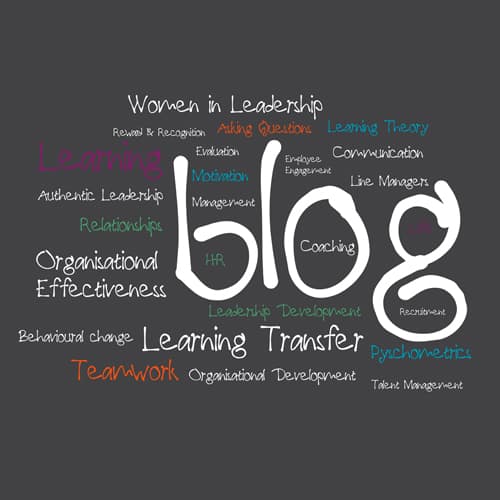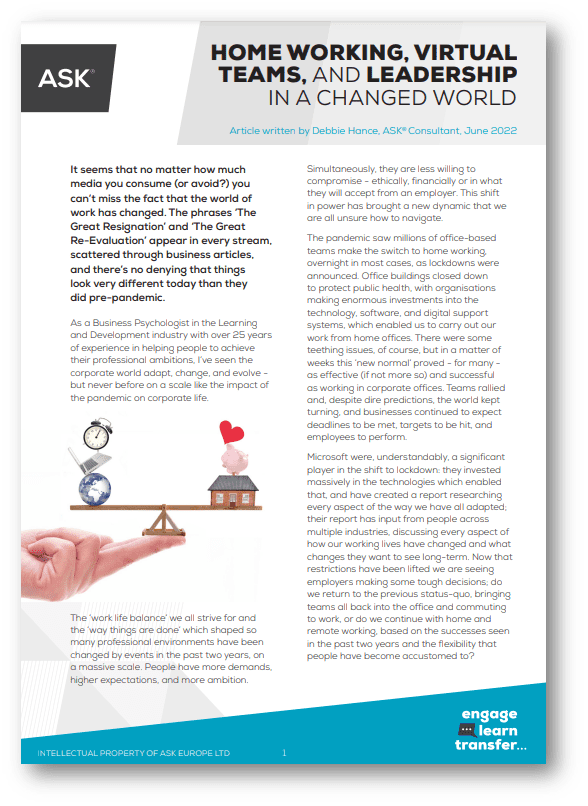Is the Glass Ceiling a myth – or is it just too simple a metaphor?
It’s common for most of us to simplify the challenges that we face – especially when we are looking for engagement from others in the process of facing them. Unfortunately, this often means that, because a problem now appears simple, it’s also easier to dismiss.
One example of this is the ‘glass ceiling’ – a term which refers to the cultural and structural limitations on career progression for women. This ‘glass ceiling’ reduces all of the complex, multi-faceted challenges women face in their career trajectory to one term – which implies one obstacle. One obstacle which, if we could only find the right hammer, and land a blow on the right point of that glass, would shatter it, and clear the way for every woman to progress unchallenged.
The reality is – of course – far more complex. And it’s not just women who face this ‘glass ceiling’, because of course we also see significant inequality in the careers of POC, those with disabilities, the LGBTQIA community, and in many other minority groups.
Progress has been made, of course, but recent figures show that only eight of the City’s top 100 business (FTSE 100) are run by women, and the proportion of female executive directors across the FTSE 100 has flatlined at 13.7% for the second consecutive year according to the most recent report from Cranfield School of Management (7 October 2021)
What is being done to challenge these statistics, and remedy the issue of inequality? A recent article from the Financial Times stated:
But is recruiting specifically for women the solution?
Clearly not – because it isn’t as simple as fewer women applying for these roles; for a multitude of reasons the glass ceiling isn’t a single incident, nor a single challenge – and those who aren’t successfully climbing to the top of the career ladder aren’t all knocking against that glass, awaiting their turn.
The challenges being faced arise throughout a career. If the population being recruited from began at stage one with every group and minority equally represented you would see, at every stage of progress, the greater fall-out of women and minority groups compared to their male (white, CIS, heterosexual) competitors. The pool of people to recruit from at CEO level is significantly lacking in women, in POC, in those with disabilities, because they have already faced those challenges consistently, and found their access to development blocked and impacted by multiple difficulties, at every single stage of promotion and progression.
If a career is a ‘track’ – a single-speed pipeline which we all have equal access to and opportunity for, then representation would be equal throughout – and if the glass ceiling were as simple as the term suggests, that pool of equal representation would be swimming in an ocean of middle management simply waiting for the chance to break through. But that’s not the case.
The practical, and realistic, impact on career development comes from a huge number of factors and challenges, and the expectations and responsibilities of life events falling so differently. Let’s consider factors like family and child-rearing. In many cases it is women who take a career break or postpone seeking promotions to have and raise children – and as a result, their development opportunities are significantly impacted:
So it seems that those women who had the same opportunities, who had the same education (and tended to achieve more and score higher in that education!), who had the same experience and capability, are already ‘behind’ men of the same age and ability, because it’s culturally more acceptable or likely that women will be the ones to take a break and raise their families, and then access back into that trajectory is significantly reduced, with greater competition for fewer roles.
Has anything changed?
Recent statistics from the Centre for Economic Policy Research and the World Economic Forum revealed that during the pandemic, those countries led by women locked down more quickly and decisively, saving lives. Having women on the board also makes companies more profitable: The Peterson Institute for International Economics found that having women at the C-Suite level significantly increases net margins.
The pandemic has shown once again that women (and other minority groups) have been impacted most significantly – because the burden of responsibility for everything else has fallen more significantly to women. Conversely, despite those barriers, we also saw that the women who were in those top roles led their organisations, communities and even countries through the dangers and difficulties of the pandemic more effectively and successfully than their male counterparts – and did so whilst also facing the additional burdens and challenges expected of women.
Development means meeting the needs your people have
We recognise that equality not only means the same opportunities for all, but also the same access to choice, to developmental interventions, to having a voice and to being heard, at every level. Our programmes – whether it’s a Women in Leadership intervention, better Diversity training, or high level management development and coaching, are shaped to meet the specific needs of your people – and to ensure that you are supporting the unique challenges they each face, to level that playing field, erase the glass ceiling, and bring better and more diverse leadership into your team.
Call our team today to find out more: call 01234 757575 or email hello@askeurope.com



